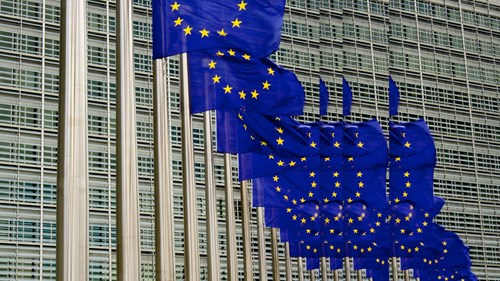Incentive or burden? The influence of virtual shares on compensation for non-compete periods
A recent decision by the Federal Labour Court (Bundesarbeitsgericht – BAG) of 27 March 2025 (case 8 AZR 63/24) on calculating the amount of compensation for non-compete periods should prompt companies to review the cost-effectiveness of post-contractual non-compete clauses for employees who receive virtual shares. In addition, the design of (virtual) share option schemes should also take into account their impact on compensation for non-compete periods.
Context
Post-contractual non-compete clauses are often agreed with managers in particular, prohibiting them from working for a competitor for a period of up to two years after the end of their employment.
When drafting post-contractual non-compete clauses for employees, sections 74 onwards of the German Commercial Code (Handelsgesetzbuch – HGB) in conjunction with section 110 of the German Industrial Code (Gewerbeordnung – GewO) contain certain requirements that must be observed. Otherwise, there is a risk that the post-contractual non-compete agreement will be non-binding or even completely invalid, with the result that the employee is not prevented from working for a competitor right after their employment ends.
In particular, the employer must agree to pay compensation for the duration of the prohibition, in return for the restrictions imposed on the employee by the post-contractual non-compete clause. The amount of compensation for the non-compete period must be at least half of the “most recent contractual remuneration” received by the employee (section 74(2) of the German Commercial Code).
- In addition to the last monthly remuneration received, all benefits of a remunerative nature as well as benefits in kind from the employer are to be taken into account, in particular the last salary, commissions, bonuses, profit sharing, Christmas/holiday pay and benefits in kind (e.g. company car for personal use).
- Insofar as the contractual remuneration includes commission or other variable payments, the average thereof received over the last three years is used to calculate the compensation due. If the applicable contract provision regarding remuneration has been in existence for less than three years, the calculation is based on the average during the period for which such provision has been in force (section 74b(2) of the German Commercial Code).
Up to now, it has been largely unclear whether payments from (virtual) share option schemes should also be taken into account when calculating the amount of compensation.
Decision by the Federal Labour Court
In its ruling of 27 March 2025, the Federal Labour Court has now decided that benefits from a virtual share option scheme must be taken into account when calculating compensation for a non-compete period if the employee exercised the options while still in employment.
In the case in question, the parties had agreed on a post-contractual non-compete clause. In addition to a fixed gross annual salary of €100,000, the claimant received virtual share options from the defendant employer, which did not constitute an entitlement to an actual share transfer, but to a cash payment. These option rights had to be earned over several years during a vesting period through work performance. After the end of the vesting period, the options could be exercised provided that an exercising event occurred in the form of a share deal, asset deal or IPO. In September 2021, the claimant exercised the vested option rights, which the defendant accounted for in October 2021. The employment ended by way of a severance agreement on 30 June 2022, after which the claimant exercised further option rights, which the defendant accounted for in October 2022. There was a dispute between the parties as to whether the payments the defendant had made based on the virtual share options should be included in calculating the compensation for the non-compete period.
The Federal Labour Court clarified that the payments the defendant made within the virtual share option scheme during the ongoing employment were part of the contractual remuneration “most recently” received by the claimant within the meaning of section 74(2) of the German Commercial Code in the form of variable payments according to section 74b(2) of the German Commercial Code. When calculating the compensation for the non-compete period, the payments are to be recognised at the average of the last three years or for the period the contract provision has been in existence – in this case 33 months (section 74b(2) of the German Commercial Code). However, this is on the condition that the option rights were exercised during the ongoing employment in the period specified in section 74b(2) of the German Commercial Code. By contrast, remuneration paid by the employer due to the exercise of option rights after the employment ends are not covered and are therefore not to be included when calculating compensation for the non-compete period.
Practical implications
The Federal Labour Court’s decision provides a degree of legal certainty in calculating the compensation for a non-compete period with regard to virtual shareholding models. But can the judgment also be applied to remuneration models aimed at granting real shareholdings, for example by including options aimed at granting actual shares?
It does seem so, at least in principle, since such benefits also generally represent consideration for the work done by the employee. However, depending on the circumstances of the individual case, the question then arises as to what value the actual shareholding should be recognised at when calculating the compensation for the non-compete period.
Structuring options for companies
Companies that (additionally) incentivise their employees with (virtual) shareholdings should now examine whether, and how, they can counteract the looming higher costs of compensation for non-compete periods.
Regular review and possible waiver of post-contractual non-compete clauses
Before agreeing on a post-contractual non-compete clause, employers should check carefully whether the compensation they will pay is offset by an appropriate economic benefit from the post-contractual non-compete clause. This is only the case if the employee concerned actually holds a position in which they learn secrets worthy of protection or the employee has expertise that is of great value to the employer’s competitors.
Employers should regularly review whether these factors are still relevant after the start of the employment. If it becomes apparent at a later date that the post-contractual non-compete clause is no longer necessary to safeguard the employer’s interest in preventing competitive activity, they should consider a waiver of the post-contractual non-compete clause. The obligation to pay compensation for a non-compete period ends at the latest one year after the declaration of waiver (section 75a of the German Civil Code). However, in the case of a waiver, the employee may start working for a competitor immediately after the employment ends.
Options if the employer is part of a group of companies
If the contractual employer is part of a group of companies and is not the parent company, the inclusion of (virtual) share options in the calculation of compensation for the non-compete period can be avoided by ensuring that these options are promised and granted exclusively by the parent company. This approach is common practice especially in corporate groups with a parent company based abroad.
- In its ruling of 25 August 2022 (case 8 AZR 453/21), the Federal Labour Court decided that the term “contractual remuneration” only includes benefits based on the exchange nature of the employment contract and provided by the employer as remuneration for work done.
- If an agreement on the granting of benefits is made by the parent company of a group of companies, these benefits received by the employee are generally not part of the “contractual remuneration” within the meaning of section 74(2) of the German Commercial Code and are therefore not taken into account when calculating the compensation for the non-compete period.
- According to the Federal Labour Court, benefits granted to an employee by a third party, even if it is an affiliate of the contractual employer, are generally not “contractual remuneration” within the meaning of section 74(2) of the German Commercial Code. The Federal Labour Court therefore rejects the notion that the contractual employer has an obligation to assume responsibility for benefits provided by third parties to the employee in relation to the employment.
Practical tip: In such an arrangement, however, care should be taken to ensure that correspondence on the commitment to and accounting for the (virtual) share options is conducted exclusively between the parent company and the employee. This will avoid creating the impression that the contractual employer is expressly or implicitly entering into its own (joint) obligation.
How to draft the option schemes
To avoid payments from (virtual) share option schemes being taken into account when calculating the compensation for non-compete periods, it is also possible to draft the schemes accordingly.
- It is usually not a solution to structure the (virtual) share option scheme in such a way that the virtual options may only be exercised after the employment ends. While the Federal Labour Court’s decision clarifies that payments from the exercise of option rights after the employment ends are not included in the calculation, that would have a negative impact on the direct motivation and loyalty of those entitled to the options and create false incentives for employees to end their employment.
- Instead, it seems sensible to specify certain periods for employees who are entitled to exercise their options in relation to limited quotas. This method prevents large sums being taken into account all at once in the three-year assessment period for the non-compete compensation (section 74b(2) of the German Commercial Code) due to the one-off exercise of options earned and accumulated over many years. At the same time, it helps employees entitled under the option scheme to remain motivated, since they can regularly benefit from their payments. However, it cannot be completely ruled out that significant sums will accumulate over the three-year period which will be included in the compensation for the non-compete period.
What about transfers to members of executive bodies?
The service agreements of the members of executive bodies, especially the members of the management board of a public limited company (AG) and managing directors of a limited liability company (GmbH), often contain agreements on a post-contractual non-compete clause. There is more room for manoeuvre in these:
- While for employees, a contractual agreement stating that the compensation for the non-compete period does not reach the amount specified in section 74(2) of the German Commercial Code leads to a post-contractual non-compete clause being non-binding, the requirements are less strict for members of executive bodies. In principle, the compensation for a non-compete period does not have to reach the amount stipulated in sections 74(2) and 74b(2) of the German Commercial Code for employees. The threshold is that the compensation for a non-compete period should not be unethically low.
- It should therefore be permissible to stipulate in post-contractual non-compete clauses agreed with executive body members that (virtual) share options are not to be taken into account when calculating the compensation for non-compete periods.
If a company decides to set up (virtual) share option schemes to incentivise and retain employees, care should always be taken to ensure that all legal and economic objectives are met. The preliminary analysis should include the impact on the obligation to pay compensation for a non-compete period.
We will of course be happy to support you in drafting and adapting post-contractual non-compete clauses and incentive schemes.
Well
informed
Subscribe to our newsletter now to stay up to date on the latest developments.
Subscribe now









